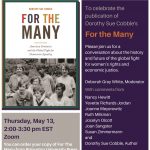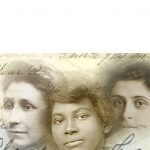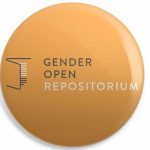 Center for Women and Work (Web), Rutgers Univ., and Princeton University Press
Center for Women and Work (Web), Rutgers Univ., and Princeton University Press
Time: Thu, 13.05.2021, 8:00–9:30 pm CEST
Venue: virtual space, via New Jersey
Link for registration (Web)
Dorothy Sue Cobble’s upcoming book „For the Many“ (2021) (Web) presents an inspiring look at how US women and their global allies pushed the nation and the world toward justice and greater equality for all. Reclaiming social democracy as one of the central threads of American feminism, Cobble offers a bold rewriting of 2oth-century feminist history and documents how forces, peoples, and ideas worldwide shaped American politics. Cobble follows egalitarian women’s activism from the explosion of democracy movements before World War I to the establishment of the New Deal, through the upheavals in rights and social citizenship at midcentury, to the reassertion of conservatism and the revival of female-led movements today.
Cobble brings to life the women who crossed borders of class, race, and nation to build grassroots campaigns, found international institutions, and enact policies dedicated to raising standards of life for everyone. Readers encounter famous figures, including Eleanor Roosevelt, Frances Perkins, and Mary McLeod Bethune, together with less well-known leaders, such as Rose Schneiderman, Maida Springer Kemp, and Esther Peterson. Multiple generations partnered to expand social and economic rights, and despite setbacks, the fight for the many persists, as twenty-first-century activists urgently demand a more caring, inclusive world. Putting women at the center of US political history, „For the Many“ reveals the powerful currents of democratic equality that spurred American feminists to seek a better life for all.
About this Discussion
The moderator is Deborah Gray White. Speakers include Nancy Hewitt, Yevette Richards Jordan, Joanne Meyerowitz, Ruth Milkman, Jocelyn Olcott, Joan Sangster, Susan Zimmermann, and the author:
Dorothy Sue Cobble specializes in the study of 2oth-century politics and social movements. Her other most recent books are Feminism Unfinished: A Short, Surprising History of American Women’s Movements and For the Many: American Feminists and the Global Fight for Democratic Equality.
Deborah Gray White is Continue reading
Category Archives: Topic_100 Jahre Frauenwahlrecht
Conference: Democracy and Gender: The Legitimation of Power in Modern Societies, 26.-28.05.2021, München and virtual space
Universität der Bundeswehr München: Hedwig Richter and Clara Maier (Berlin) (Web)
Time: 26.-28.05.2021
Venue: München and virtual space
Registration by: 24.05.2021
This conference examines the complex interactions between the emergence of mass democracy and radical changes in gender relations in the 19th and 20th centuries.
With contributions from historians, political scientists and political theorists the conference aims to better understand the role of gender in the functioning, the legitimation and de-legitimation of modern democracy.
Keynotes
- Barbara Stollberg-Rilinger (Berlin): Monarchie und Geschlecht: Herrschaftslegitimation im frühneuzeitlichen Europa
- Georgina Waylen (Manchester): Engendering the crisis of democracy
Panels
- Democracy’s Legitimacy in Crisis?
- Female Rule: A Special Kind of Power?
- The Legitimating Power of Masculinity
- Representing Gendered Orders
- Difference and Inclusion
Program in detail as PDF
Online registration until 24.05.2021 to Nicole Höner: nicole.hoener@unibw.de
Source: www.hsozkult.de/event/id/event-96341
Ausstellung: Iris von Roten – «Frauen im Laufgitter», Laufzeit: bis 30.05.2021, Zürich
 Strauhof (Web)
Strauhof (Web)
Laufzeit: 02.03.2021 bis 30.05.2021
Ort: Strauhof, Augustinerg. 9, 8001 Zürich
Ausstellung anlässlich von 50 Jahren Frauenstimm- und Wahlrecht in der Schweiz.
Iris von Rotens «Frauen im Laufgitter» (1958) ist ein ungeheures Werk – witzig und wütend zugleich, unschweizerisch polemisch und dabei äusserst gründlich recherchiert. In vielen Thesen bleibt es hochaktuell. Diese «Klassikerin», ein Buch, dessen Fragen von jeder Generation neu beantwortet werden wollen, bringt die Schweizer Theatergruppe Mass & Fieber in einer Ausstellung jetzt in den Strauhof.
Iris von Roten (1917–1990) promovierte als eine von wenigen Frauen ihrer Zeit als Juristin. Sie begann eine Amour fou mit Peter von Roten, einem Walliser Aristokraten und späteren Politiker. Sie heirateten 1946 – und hatten mit Kenntnis der/s anderen aussereheliche Affären; von der Hausarbeit ließ sie sich per Ehevertrag entbinden. Das Paar hat eine Tochter und führte gemeinsam eine Anwaltskanzlei. Zehn Jahre arbeitet Iris von Roten an «Frauen im Laufgitter», bis das Buch 1958 erscheint.
«Hier ist das Buch, das ich mit 20 Jahren gerne gelesen hätte, aber nicht fand», schrieb von Roten im Vorwort. Für die Schweizer Frau forderte sie die sexuelle Selbstbestimmung. Eine «Verscharrung von Begabungen» nannte sie die Verdrängung der Schweizerinnen aus dem Berufsleben. «An weniger Mutter haben die Kinder mehr!» rief ihr Kapitel über Mutterschaft als «Bürde ohne Würde». Was das weiterhin fehlende Frauenstimmrecht in der Schweiz anging, erklärte sie nicht als erste, dass dieses Recht den Frauen laut Verfassung längst zusteht. Denn wenn es um Steuern ginge, sei die Bürgerin im Begriff des «Bürgers» durchaus mitgemeint: «Pikanterweise vermag keine andere Staatsform die Unterdrückung der Angehörigen des weiblichen Geschlechtes so deutlich zu veranschaulichen wie die demokratische, wenn sie den Frauen die politischen Rechte vorenthält.»
1959 fand die erste Volksabstimmung über das Frauenstimmrecht in der Schweiz statt. Die grosse Mehrheit der stimmberechtigten Männer verweigerte den Frauen ihre politischen Rechte. Von Roten wurde vom Bund Schweizerischer Frauenvereine (BSF) beschuldigt, die Abstimmung mit ihrem radikalen Buch negativ beeinflusst zu haben. Erst 1971 nahmen die Schweizer das Frauenstimmrecht auf nationaler Ebene an.
Vorträge und Diskussion: Unter Druck – Frauen in der Krise, 08.03.2021, virtueller Raum
 Die Zweite Präsidentin des Nationalrates Doris Bures
Die Zweite Präsidentin des Nationalrates Doris Bures
Zeit: Mo., 08.03.2021, 17:00 Uhr
Ort: virtueller Raum, via Wien
Vor 110 Jahren – im März 1911 – gingen in Österreich erstmals allein in Wien über 20.000 Frauen und solidarische Männer, anlässlich des Internationalen Weltfrauentages auf die Straßen, um für die Gleichberechtigung von Frauen zu kämpfen. Der Lebensalltag von Frauen damals war ein ganz anderer als heute. Einige der historischen Forderungen sind heute umgesetzt, andere warten noch auf ihre Erfüllung. Anlässlich des 110-jährigen Jubiläums gibt Gabriella Hauch einen Überblick über die Entwicklungen und Veränderungen der Frauenleben in Österreich der letzten 110 Jahre.
Welchen besonderen Herausforderungen und psychischen Belastungen sich gerade Frauen jetzt durch die aktuelle Corona-Krise ausgesetzt sehen, wie man aus diesen Krisensituationen herauskommen und wie man sie vermeiden kann, besprechen die Psychoanalytikerinnen Erika Freeman und Jutta Menschik-Bendele in einem von Patricia Pawlicki moderierten Dialog.
Programm
Begrüßung und Moderation: Patricia Pawlicki (Journalistin)
Keynotes
- Gabriella Hauch (Univ.Professorin für Geschichte, Univ. Wien): Zukunft braucht Vergangenheit! 110 Jahre Weltfrauentag in Österreich. Vom Frauenleben damals bis heute
- Doris Bures (Zweite Präsidentin des Nationalrates): Frauen 2021: Eine kritische Analyse
Im Gespräch
- Erika Freeman (Psychoanalytikerin, Zeitzeugin und Autorin)
- Jutta Menschik-Bendele (Psychoanalytikerin, em. Univ.Professorin und eh. Vizerektorin der Alpe-Adria-Univ.)
Livestream
Der Livestream wird kurz vor Veranstaltungsbeginn in der Mediathek des Parlaments verfügbar sein. Hier gelangen Sie zum Livestream (Link)
Symposium: In Her Own Right: Activist Women, 1820-1920, 18.-19.03.2021, virtual space
 The Philadelphia Area Consortium for Special Collections Libraries (PACSCL) and In Her Own Right project (Web)
The Philadelphia Area Consortium for Special Collections Libraries (PACSCL) and In Her Own Right project (Web)
Time: 18.-19.03.2021
Venue: virtual space, via Philadelphia
100 years after the passage of the 19th Amendment, PACSCL is the organizer of an online conference on women’s activism, 1820-1920. Martha S. Jones, author of „Vanguard: How Black Women Broke Barriers, Won the Vote, and Insisted on Equality for All“ (Web) will give the keynote. The registration is open now (Web). This conference will celebrate more than 5 years of work on the In Her Own Right project (Web).
Program
See the program in more detail here (Web).
Thursday, March 18, 2021
- 09:00 am: Opening Plenary and Session #1: Portals to the documentary history of women’s activism
- 10:15 am: Friendship and Relationships Between Women
- 11:45 am: Professional Women
- 2:00 pm: Track 1: Peacemakers
- 2:00 pm: Track 2: Women in Politics
- 3:15 pm: Track 1: Undisputed Dignity: Preserving Anna Julia Cooper’s Legacy Through Her Archives
- 3:15 pm: Track 2: Alice Paul at the University of Pennsylvania: A Study of “The Legal Rights of Women in Pennsylvania” (1912)
- 6:00 pm: Keynote from Martha S. Jones
Friday, March 19, 2021
- 09:00 am: Perspectives on Suffrage
- 10:45 am: Philanthropy with Strings
- 12:00 pm: Antislavery Women
- 2:00 pm: Track 1: Prominence and Memory
- 2:00 pm: Track 2: El Voto Feminino: Women and Suffrage in New Mexico’s Past and Present
- 3:45 pm: Track 1: Lives Recreated in the Reconstruction Era
- 3:45 pm: Track 2: Social Change in the WWI Era
Tagung: Parteipolitik oder Neue Soziale Bewegung? Zur Durchsetzung geschlechterdemokratischer Ansprüche im 20. Jhd., 11.-12.03.2021, virtueller Raum
 Julia Paulus, LWL-Institut für westfälische Regionalgeschichte (Web) in Koop. mit dem Arbeitskreis Historische Frauen- und Geschlechtergeschichte (AKHFG e.V.) (Web)
Julia Paulus, LWL-Institut für westfälische Regionalgeschichte (Web) in Koop. mit dem Arbeitskreis Historische Frauen- und Geschlechtergeschichte (AKHFG e.V.) (Web)
Zeit: 11.-12.03.2021
Ort: virtueller Raum, via Münster
Anmeldung bis: 01.03.2021
Das 20. Jhd. zeichnet sich u.a. dadurch aus, dass in ihm verschiedene Formen emanzipatorischer Politiken entwickelt, verhandelt und ausprobiert wurden. Wurde zu Beginn des Jahrhunderts (1918) das Frauenwahlrecht eingeführt und damit der Weg für die Partizipation von Frauen in den Parlamenten frei, entwickelten sich ab den 1960er-Jahren alternative Politikmodelle, die als außerparlamentarische Opposition bewusst nicht mehr auf Parteien und Parlamente setzten. In beiden Fällen war es (auch) die Frauenbewegung, die mit ihren Themen, Forderungen und Theorien die Debatten in den politischen Feldern anregte.
Besonders in Bezug auf die Neuen Sozialen Bewegungen soll untersucht werden, wie diese als alternative Trägerinnen gesellschaftlicher Reformpolitik auf die Forderungen der Frauenbewegung reagierten und welche Art von politischer Praxis in ihnen umgesetzt wurde. Auf welche Weise und in welchem Maße konnte Forderung nach Emanzipation in ihnen umgesetzt werden? Welche Rolle und Bedeutung wurde dem Projekt einer ‚Geschlechterdemokratie‘ beigemessen?
Programm
Do., 11.03.2021
- 09.30 Uhr: Julia Paulus (Münster): Einführung: Formen und Wege der Durchsetzung geschlechterdemokratischer Ansprüche im 20. Jhd.
10.00 Uhr: Panel 1: Frauenparteien als Kompromiss oder Alternative? Moderation: Kerstin Wolff (Kassel)
- Leonie Kemper (Münster): Gemeinsam gegen die Männerpolitik? Die Diskussion über eine Frauenpartei im Kaiserreich und der Weimarer Republik
- Bernhard Gotto (München): Frauenparteien in der Kritik der Neuen Frauenbewegungen
CfP: Suffrage Now! (Event: 08/2021, Stockholm); by – extended -: 15.03.2021
 Stockholm University (Web)
Stockholm University (Web)
Venue: Stockholm University
Time: 13.-14.08.2021
Proposals by – extended –: 15.03.2020
This conference commemorates the centennial of the introduction of universal and equal suffrage in Sweden. The aim is to initiate and present research on the introduction of women’s suffrage and its consequences in a comparative and global perspective and bring together scholars from a variety of disciplines and countries in order to share their expertise and experiences and participate in a critical dialogue on women’s suffrage, gender and democracy.
Keynotes:
- Birgitta Bader-Zaar (Vienna): Women’s Enfranchisement as an Iconic National Milestone
- Corrine McConnaughy (Princeton Univ.): US Women Suffrage as Racialized Claim: Incentives and Outcomes
- Veronica Giordano (Buenos Aires); Suffrage and Beyond in Latin America: Candidates, First Ladies and Presidents
- Sumita Mukherjee (Bristol): Indian Suffragettes: Female Identities and Transnational Networks
The conference is organized around the following themes:
- The actors: This theme revolves around the role of actors— the visions, strategies and transnational interactions of the suffrage movements. Alliances and conflicts. We welcome papers on historical analyses, as well as papers focused on contemporary social and political movements for political inclusion, representation and democracy processes.
- The institutions: This theme engages with the institutional and historical context of suffrage, for instance nationalism, war and new institutions. We welcome papers focused on the limitations and constraints to universal suffrage. We also welcome papers exploring the contemporary challenges to democracy and political representation from a gender or intersectional perspective.
- Culture, discourses and morality: This theme focuses on the manifestations of the struggle for suffrage through culture and discourse, for instance affections, songs and posters, bodies and dress code. Narratives and … read more (Web).
Source: genus-request@listserv.gu.se
Klicktipp: GenderOpen – Ein Repositorium für die Geschlechterforschung (Portal): Forschungsliteratur in PDF-Form online frei zugänglich
 GenderOpen – Ein Repositorium für die Geschlechterforschung (Web)
GenderOpen – Ein Repositorium für die Geschlechterforschung (Web)
Auf GenderOpen werden wissenschaftliche Texte Feld der Geschlechterforschung, die zuvor in anderen Medien wie Zeitschriften erschienen sind, online gesammelt und können – kostenfrei – heruntergeladen werden.
Der Bestand wird laufend erweitert. Derzeit sind bereits um die 1.800 Texte eingestellt, die zwischen 1978 und 2021 publiziert wurden. Das Schlagwort „Geschichte“ ist dabei aktuell 1.261-mal vergeben worden (Link).
Autor/innen sind außerdem eingeladen, eigene Texte unter Open-Access-Bedingungen als Erst- oder Zweit-Veröffentlichung zur Verfügung zu stellen.
GenderOpen ist seit Dezember 2017 online. Finanziert wird es von der DFG. Die Ziele von GenderOpen sind:
- Veröffentlichungen aus der Geschlechterforschung als Open Access-Publikationen an einem zentralen Ort zu sammeln, um sie möglichst umfassend abzubilden und dauerhaft und unkompliziert frei zugänglich zu machen.
- Die Geschlechterforschung ist im Gegensatz zu vielen anderen wissenschaftlichen Fächern relativ jung und durchläuft derzeit einen starken gesellschaftlichen Validierungsprozess. GenderOpen will dazu beitragen, die Geschlechterforschung zu stärken, indem die wissenschaftlichen Ergebnisse nach außen präsentiert sowie leichter verbreitet werden.
- Als zentrale Anlaufstelle will GenderOpen Autor/innen unterstützen, die Texte im Bereich der Geschlechterforschung produzieren. Dabei geht es einerseits darum, ihnen eine Plattform zu bieten, auf der ihre Texte auch Jahre nach der Erstveröffentlichung eine hohe Reichweite haben und die langfristige Verfügbarkeit gesichert ist.
- GenderOpen will zudem Autor/innen über ihre Rechte und Möglichkeiten im Bereich der Zweitveröffentlichung informieren, die ihnen im Rahmen des deutschen Urheber/innenrechts gegeben sind.
- GenderOpen will die Geschlechterforschung dabei unterstützen, die Vorteile des elektronischen Publizierens unter echten Open-Access-Bedingungen auch zu nutzen.
Klicktipp: Neuerungen am Webportal “Frauen in Bewegung 1848-1938”: Persönliche Netzwerke können visualisiert aufgerufen werden (Portal)
 Frauen in Bewegung 1848–1938 (Web)
Frauen in Bewegung 1848–1938 (Web)
Haben Sie sich auch schon immer gefragt, welche persönlichen Netzerke eine bestimmte Feministin der Ersten Frauenbewegung hatte? Auf dem Portal “Frauen in Bewegung 1848–1938” können diese direkt nachvollzogen werden.
Ein 2021 präsentiertes Feature macht es möglich, auf der Site die Verbindungen zwischen (einer Auswahl von) Akteurinnen und Frauenvereinen in dynamischen Grafiken anzuzeigen. Damit lassen sich die Vernetzungen und verbindende Themen von über 600 Frauen und rund 400 Organisationen entdecken – zusätzlich zur Fülle an Informationen, Publikationen und Dokumenten in Volltext.
Ein besonders vielfältiges und dichtes Netzwerk kann dabei zum Beispiel für Charlotte von Königwarter (geb. von Wertheimstein, 1841-1929) belegt werden, die an dieser Stelle exemplarisch herausgegriffen wird, um diese technischen Möglichkeiten des Webportals vorzustellen (Link).
Das Webportal “Frauen in Bewegung 1848–1938” wird von Ariadne betrieben. Ariadne ist Teil der Österreichischen Nationalbibliothek.
Auf “Frauen in Bewegung 1848–1938” werden die Aktivitäten aus 90 Jahren Frauenbewegung in Österreich anhand der Dokumente sowie weiterer Informationen von mehreren hundert Personen und Frauenorganisationen präsentiert. Dies geschieht mittels Kurzdarstellungen zu Frauen und Organisationen, Nachweisen zu Quellen und Sekundärliteratur – sowie durch die Verlinkung zu Volltext-Dokumenten. Das Webportal wurde Anfang 2020 komplett neu gestaltet (Link).
Radiosendung mit Veronika Helfert zur Gewerkschafterin Lucie Loch: „Kämpfen für das Glück aller Menschen“, 15., 21. und 22.01.2021 und 21.01.2021, virtueller Raum
 Arbeiterkammer Kärnten: Sendung „PANOPTIKUM Bildung“ (Web)
Arbeiterkammer Kärnten: Sendung „PANOPTIKUM Bildung“ (Web)
Zeit: 15.01.2021, 18.00 Uhr: Radio AGORA (Web)
Wiederholungen: 21.01.2021, 09.00 Uhr: Radio Helsinki (Web) und 22.01.2021, 08.00 Uhr: Radio Oberpullendorf (Web)
Die Radiosendung kann auf der Website von „PANOPTIKUM Bildung“ nachgehört werden (Web).
Sie arbeitete während des Ersten Weltkrieges als Pflegerin im einem Kriegsspital. Der ausbeuterische Drill und die strikte unmenschliche Reglementierung der militärischen Spitalskommandanten gegenüber den Pflegerinnen empörte Lucie Loch (1881-1943) derartig, dass sie begann, sich dagegen zur Wehr zu setzen. Sie wurde schließlich zur Sprecherin des Personals und in der Ersten Republik zur Sekretärin der Gewerkschaft des Krankenpflegepersonals.
Lucie Loch stand auch in der Zeit der Illegalität mit den Krankenpflegerinnen der großen Spitäler in Verbindung und hielt eine Art Untergrundorganisation aufrecht, die die damals offizielle klerikal-faschistische Krankenschwesternorganisation bekämpfte. Gleichzeitig war sie in der Betriebsorganisation der Revolutionären Sozialisten tätig, die dem zentralen Frauenkomitee der Untergrund-Gewerkschaften angehörte. Obwohl sie bereits schwer krank war, engagiert sie sich für verfolgten Kollegen/innen. Ihre Wohnung war Treffpunkt und Versteck vieler vom Regime Verfolgter, die im Zuge des NS-Terrors ermordet wurden.
Im virtuellen Studioraum erläutert die Historikerin Veronika Helfert (Univ. Wien) an Beispielen der Lebensgeschichte von Lucie Loch die sozialhistorischen Rahmenbedingungen in der Zwischenkriegszeit und liefert Schlaglichter auf die Arbeiterinnenbewegung in dieser Zeit. Gesprächspartnerinnen sind: Maria Mucke (Alpen-Adria-Univ. Klagenfurt), die Kultur- und Sozialanthropologin Klara Isopp und Anna Enderle (Institut für die Geschichte der Kärntner Arbeiterbewegung in Kärnten).
„PANOPTIKUM Bildung“ wird gestaltet von Heinz Pichler, Bildungsexperte der AK Kärnten: Jeden 1. und 3. Freitag im Monat von 18 bis 19 Uhr auf Radio AGORA (105,5 MHz) (Link), dem darauffolgenden Donnerstag von 9 bis 10 Uhr auf Radio Helsinki, Graz (92,6 MHz) (Link) und am 2. und 4. Freitag im Monat um 8 Uhr bei Radio Oberpullendorf (98,8 MHz) (Link).
Informationen zu Lucie Loch auf dem Portal „Frauen in Bewegung“ (Web)
